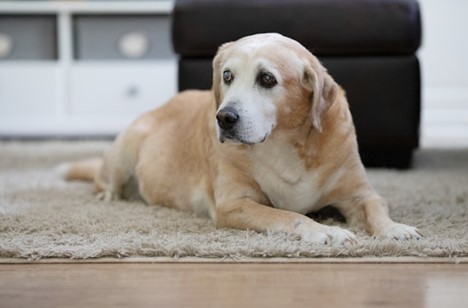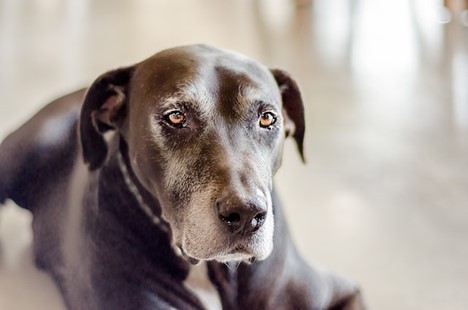Katherine Marraccini, an experienced veterinarian with a deep passion for geriatric animal care, offers invaluable insights into how to best support senior dogs through their golden years. With her extensive knowledge and compassionate approach, Katherine provides essential tips on age-appropriate nutrition, exercise modifications, preventive health care, and managing age-related conditions such as arthritis and cognitive decline.
As our beloved canine companions age, their needs change, and they require extra care and attention to maintain their health and well-being. Senior dogs, typically considered to be around seven years or older, may experience age-related issues such as arthritis, cognitive decline, and reduced mobility. These changes can affect their overall quality of life, making it essential for pet owners to adjust their care routines accordingly. Regular veterinary check-ups become increasingly important to catch and manage health problems early.
Additionally, providing a comfortable living environment, ensuring mental stimulation, and maintaining a proper exercise regimen are crucial components of senior dog care. By addressing these aspects, we can help our aging furry friends navigate their later years with ease and comfort. But first is a discussion on the specifics of nutrition for senior dogs, and how dietary adjustments can support their health and longevity.
Katherine Marraccini Discusses Age-Appropriate Nutrition
Proper nutrition is essential for senior dogs to support their overall health and vitality as they age. Here are some tips for providing age-appropriate nutrition:
- Quality Protein: Choose high-quality, easily digestible protein sources to maintain muscle mass and support your senior dog’s energy levels.
- Joint Health Supplements: Katherine Marraccini suggests adding supplements such as glucosamine, omega-3s, and chondroitin to your dog’s diet to support joint health and mobility, especially if they are showing signs of arthritis or stiffness.
- Balanced Diet: Ensure your dog’s diet is well-balanced and tailored to their individual needs, taking into account factors such as breed, size, activity level, and any underlying health conditions. Make sure your diet follows the AFFCO requirements to ensure it is balanced appropriately.
- Weight Management: Monitor your senior dog’s weight closely and adjust their calorie intake as needed to prevent obesity, which can exacerbate age-related health issues such as arthritis and heart disease.
- Hydration: Ensure your dog has access to fresh, clean water at all times to prevent dehydration and support overall health and hydration.
Exercise Modifications
Katherine Marraccini says that while regular exercise is important for senior dogs to maintain muscle tone and joint flexibility, it’s essential to make adjustments to accommodate their changing needs. Here are some exercise modifications for senior dogs:
- Low-Impact Activities: Opt for low-impact exercises such as leisurely walks, swimming, and gentle playtime to reduce strain on your dog’s joints and minimize the risk of injury.
- Shorter Sessions: Break up exercise sessions into shorter, more frequent intervals to prevent overexertion and fatigue, especially for dogs with reduced stamina or mobility issues.
- Warm-Up and Cool-Down: Incorporate warm-up and cool-down routines into your dog’s exercise regimen to prepare their muscles and joints for activity and promote recovery afterward.
- Comfortable Surfaces: Choose soft, supportive surfaces for exercise, such as grass or carpet, to cushion your dog’s joints and provide better traction and stability.
- Supervised Activities: Katherine Marraccini says to always supervise your senior dog during exercise to monitor their comfort level and ensure they don’t overexert themselves or aggravate existing health conditions.

Preventive Health Care
Regular veterinary check-ups are crucial for senior dogs to detect and manage age-related health issues early. Katherine Marraccini provides below some preventive health care measures to consider:
- Routine Exams: Schedule regular wellness exams with your veterinarian to monitor your senior dog’s overall health, including physical condition, weight, mobility, and cognitive function.
- Dental Care: Maintain good dental hygiene by brushing your dog’s teeth regularly and scheduling professional dental cleanings as recommended by your veterinarian to prevent periodontal disease and tooth decay.
- Vaccinations and Parasite Control: Stay up to date on vaccinations and parasite prevention treatments to protect your senior dog from common diseases and parasites that can compromise their immune system and overall health.
- Bloodwork and Screening Tests: Katherine Marraccini recommends routine bloodwork and screening tests to assess your dog’s organ function, detect underlying health issues such as kidney disease or diabetes, and monitor the effectiveness of any ongoing treatments or medications.
- Senior-Specific Health Screenings: Discuss senior-specific health screenings with your veterinarian, such as thyroid function tests, urinalysis, and eye exams, to identify and address age-related health concerns proactively.
Managing Age-Related Conditions
As dogs age, they may experience various age-related conditions that require special attention and management. Here are some common age-related conditions in senior dogs and tips for managing them:
- Arthritis: Manage arthritis symptoms with pain management medications, joint supplements, weight management, and low-impact exercise. Provide supportive bedding and ramps to make it easier for your dog to navigate their environment.
- Cognitive Dysfunction: Support cognitive function with mental stimulation activities, such as puzzle toys, interactive games, and training exercises. Create a predictable routine and environment to reduce confusion and anxiety.
- Vision and Hearing Loss: Make adjustments to your home environment to accommodate your dog’s changing sensory abilities, such as using visual cues for commands and providing additional lighting or tactile markers to help them navigate safely.
- Incontinence: Address urinary or fecal incontinence issues with appropriate management strategies, such as medication, dietary modifications, scheduled bathroom breaks, and waterproof bedding or diapers.
- Heart Disease: Manage heart disease with medication, dietary changes, and regular veterinary monitoring to optimize your dog’s cardiac function and quality of life.
Conclusion
Katherine Marraccini says that caring for a senior dog requires patience, compassion, and a proactive approach to address their changing needs and maintain their quality of life. By providing age-appropriate nutrition, modifying exercise routines, prioritizing preventive health care, and managing age-related conditions effectively, you can support your aging canine companion’s health and well-being in their golden years. Remember to consult with your veterinarian for personalized advice and guidance tailored to your senior dog’s individual needs and health status. With proper care and attention, you can ensure that your senior dog enjoys a happy, comfortable, and fulfilling life for years to come.

